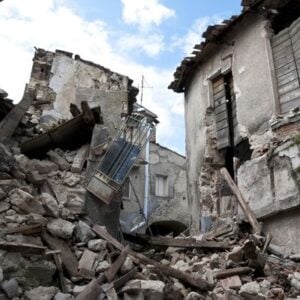The head of the UN Palestine refugee agency, UNRWA, has renewed calls for foreign journalists to be granted access to the Gaza Strip to counter what he describes as an “information war,” which includes attempts to deny the growing famine in the area. OCHA reported that in just five days, 11 UNRWA premises in Gaza City, serving as emergency shelters for around 11,000 people, were damaged by direct or indirect hits.
Displacement across the Gaza Strip has surged, with over one million people uprooted since the ceasefire between Israel and Hamas collapsed in mid-March. In the past month alone, approximately 200,000 people moved from northern to southern Gaza, including 56,000 since a recent Sunday. Despite heavy restrictions, UN agencies and partners are striving to provide life-saving support across the devastated enclave.
Humanitarian efforts have included collecting over 12,500 metric tonnes of wheat flour, food parcels, and bulk supplies from Israeli-controlled crossings. Nearly 560,000 meals are being served daily through 116 kitchens, alongside 10,000 loaves of bread distributed to displaced people. Children are being screened for malnutrition and enrolled in treatment programs. UNICEF has dispatched over 200,000 packs of nutrient-rich baby food to support more than 63,000 infants for two weeks, and 10,000 boxes of high-energy biscuits for over 10,000 acutely malnourished pregnant and breastfeeding women for a month.
To address the healthcare crisis, nearly 900 pallets of essential medical supplies have been delivered to health facilities, including 120 ICU and emergency beds and four anesthesia machines sent to Al Aqsa Hospital in Deir Al-Balah. Humanitarian teams have also supported desalination efforts, transported water across Gaza, scaled up solid waste collection, and distributed 1,000 hygiene kits.
OCHA highlighted that the aid reaching Gaza remains far below the scale of need, with access systematically blocked and new restrictions imposed weekly. For example, Zikim crossing—the only direct route from Israel to northern Gaza, where famine has been confirmed—has been closed, and some food items like peanut butter have been classified as “luxuries” and barred entry, leaving large amounts of aid stranded. Humanitarian movements inside Gaza are also restricted, with several approved convoys denied access.
UNRWA Commissioner-General Phillipe Lazzarini emphasized that Gaza has become a battleground for a fierce information war, where disinformation is used to undermine assessments, deny atrocities, and dehumanize Palestinians. He called for international journalists to be allowed into Gaza to support local reporters and report independently on events, highlighting the critical role of media in countering false narratives and documenting the humanitarian crisis.







